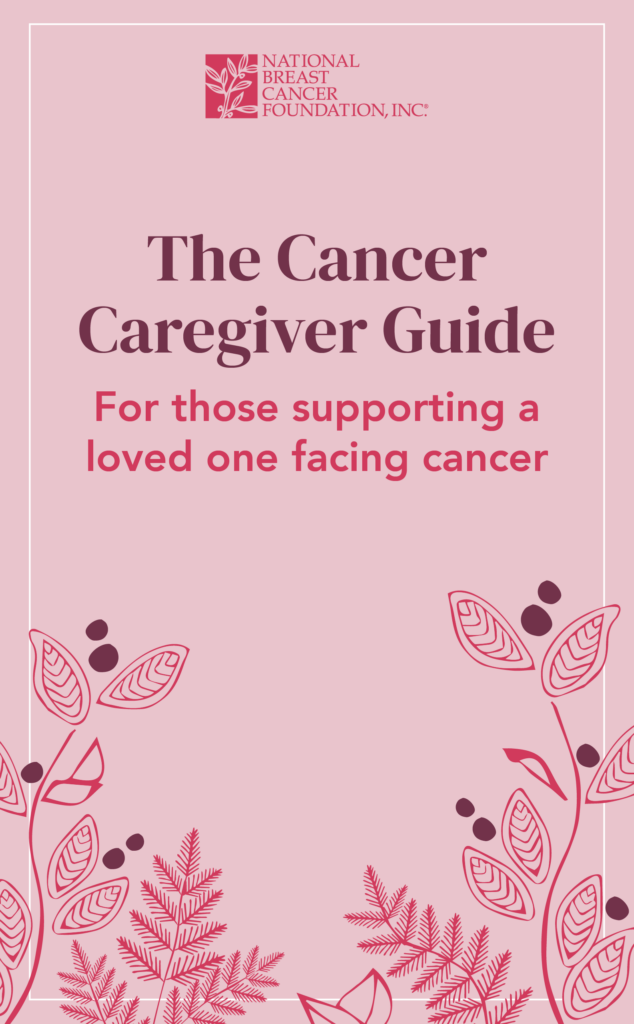The Cancer Caregiver Guide
The support every caregiver needs
Caregiving is a labor of love.
If you are one of the 20-plus percent of Americans providing unpaid caregiving to another adult, then you have likely experienced uncertainty, frustration, and maybe even exhaustion. But hopefully, you have experienced moments of connection and compassion as well.

While many aspects of a patient’s diagnosis are out of your control, there are things you can do to improve the quality of life for both you and your loved one. The Cancer Caregiver Guide is here to help you every step of the way as you provide care to someone facing cancer.
Get the free Cancer Caregiver Guide:
This guide includes:
- The information you need to get organized as a caregiver
- The key roles—and challenges—of caregiving
- Tips on self-care
- Questions to ask the patient’s healthcare team
- Advice from real caregivers
- And more!
Here’s a sneak peek of what’s inside:

National Breast Cancer Foundation recognizes that cancer care takes a village and that caregivers play an essential role in the cancer journey. This guide honors your dedication and helps you navigate this time more easily while sharing strategies to support you and the person you care for.
What our community is saying:
“I finally got a chance to read this eBook. It was one of the most helpful resources that I have come across! I wish it was recommended to me when we started this journey!” – Janet
“I saw my mom go through being a caregiver three different times in her life, and I know how burdensome it can be on your mental and physical health. The Cancer Caregiver Guide resonates with me as it offers practical tips on how to be a caregiver and information on how to take care of yourself as a caregiver.” – Paula
“I appreciate the Cancer Caregiver Guide as a supportive tool for those who are serving as caregivers during the challenges of cancer… Not all cancers are terminal and people need to feel supported as they assist in the caregiver role. Families need support. Your guide will help, and hopefully avoid the ‘burnout’ that too often occurs. Thank you so much.” – Jane
Where can we send your free guide?

The concepts in this guide are non-medical in nature and are intended for supplementary purposes only. If you are experiencing a mental health challenge or crisis, please seek immediate help from a doctor or mental health professional, or call 988.

